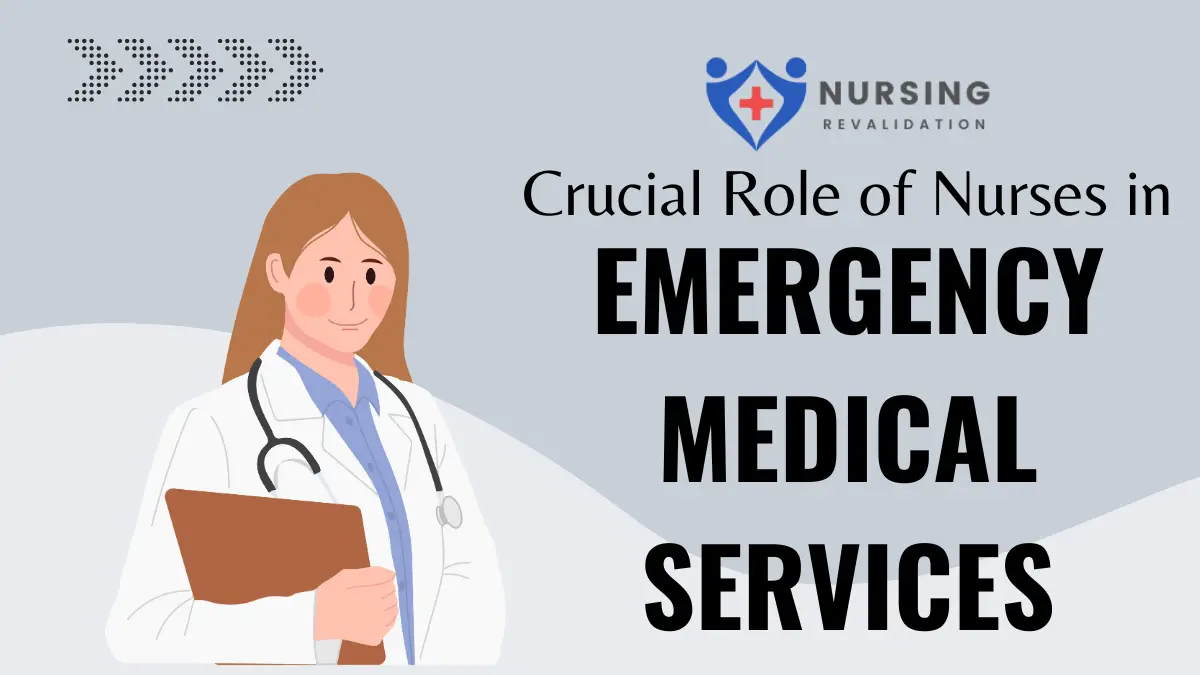Emergency Medical Services (EMS) are the frontline responders in critical situations, providing immediate care and support to those in need. While often lauded for their heroic efforts, it’s essential to shine a spotlight on the unsung heroes within EMS: nurses. In this comprehensive guide, we delve into the pivotal role nurses play in EMS, highlighting their contributions, challenges, and the indispensable value they bring to emergency healthcare.
Table:
| Aspect | Description |
|---|---|
| Triage and Assessment | Nurses conduct rapid assessments and prioritize care based on severity. |
| Patient Stabilization | Nurses stabilize patients’ conditions through medications, procedures, and interventions. |
| Communication and Coordination | Nurses liaise between paramedics, physicians, and healthcare professionals, facilitating seamless transitions of care. |
| Patient Advocacy | Nurses advocate for patients’ rights and preferences, providing holistic support during times of crisis. |
The Backbone of EMS: Nurses at the Core
Nurses form the backbone of EMS, serving as the bridge between patients and comprehensive care. From ambulances to emergency rooms, their expertise is indispensable in delivering timely and effective interventions. Let’s explore the multifaceted role of nurses in various aspects of emergency medical services:
1. Triage and Assessment: In the chaotic environment of emergencies, nurses are often the first point of contact for patients. They conduct rapid assessments, prioritize care based on severity, and initiate crucial interventions. Their clinical judgment and quick decision-making are instrumental in determining the course of treatment.
2. Patient Stabilization and Treatment: Once patients are triaged, nurses step into action to stabilize their condition. Whether administering medications, performing procedures, or managing life-threatening emergencies, their proficiency ensures patients receive optimal care en route to the hospital or within the emergency department.
3. Communication and Coordination: Effective communication is paramount in EMS, and nurses excel in this domain. They liaise between paramedics, physicians, and other healthcare professionals, conveying critical information and facilitating seamless transitions of care. Their clear instructions and concise updates streamline operations, enhancing patient outcomes.
4. Patient Advocacy and Empowerment: Nurses advocate for patients’ rights and preferences, ensuring their voices are heard amidst the chaos. They empower individuals to make informed decisions about their care, respecting their autonomy and dignity. Through empathy and compassion, nurses provide holistic support to patients and their families during times of crisis.
Challenges and Opportunities:
Despite their invaluable contributions, nurses in EMS face unique challenges that warrant attention. Limited resources, high-stress environments, and unpredictable caseloads can take a toll on their well-being and job satisfaction. Moreover, the evolving landscape of emergency healthcare necessitates ongoing training and education to keep pace with advancements in technology and protocols.
The Future of Nursing in EMS:
As healthcare continues to evolve, so too does the role of nurses in EMS. With the advent of telemedicine, mobile healthcare units, and community-based interventions, nurses have the opportunity to expand their scope of practice and reach underserved populations. By embracing innovation and collaboration, they can drive positive change and shape the future of emergency medical services.
Conclusion:
In conclusion, nurses are the unsung heroes of emergency medical services, embodying professionalism, resilience, and compassion in the face of adversity. Their unwavering dedication saves lives, comforts the afflicted, and inspires hope in times of crisis. As we navigate the complexities of modern healthcare, let us recognize and celebrate the indispensable role nurses play in ensuring the safety and well-being of our communities.

